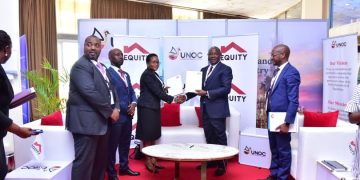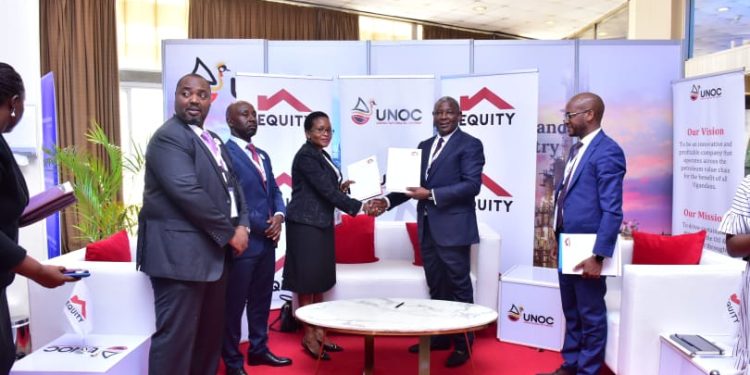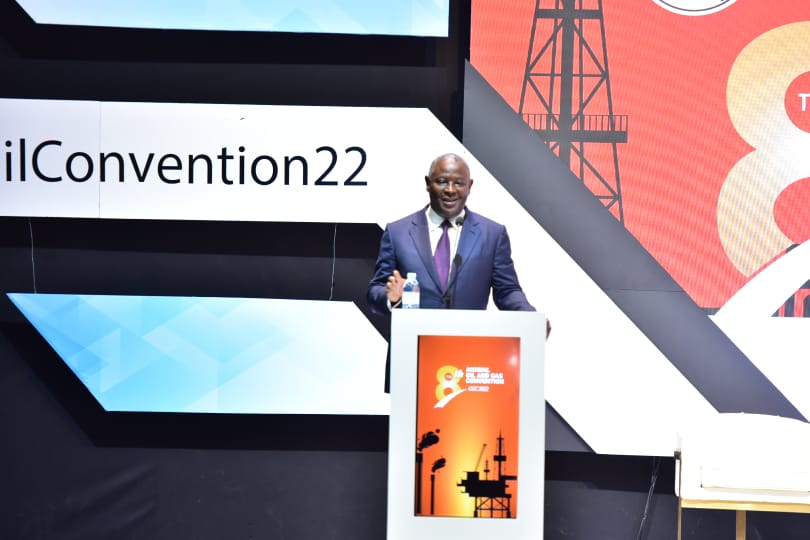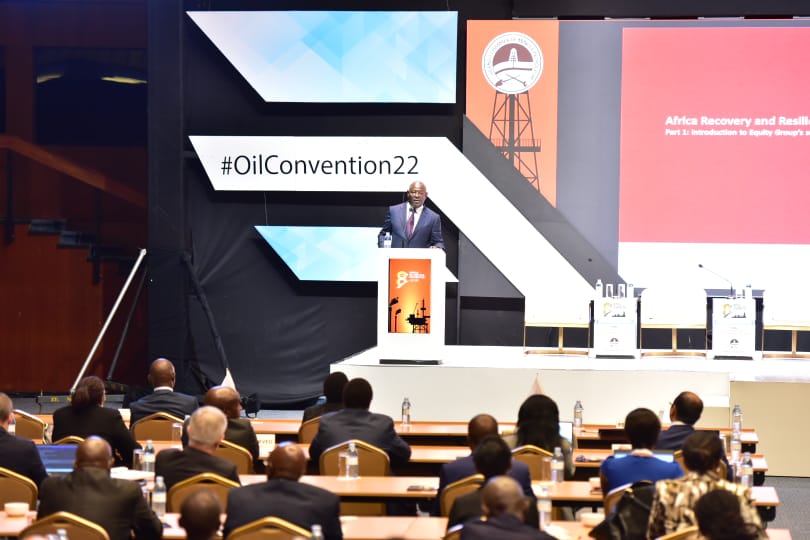Kampala, 13 April 2022. Equity Bank Uganda and the Uganda National Oil Company (UNOC), today, signed a Memorandum of Understanding, to facilitate and strengthen collaboration between the two entities in the areas of financing and enterprise development specifically for MSMEs, clean energy use and environmental conservation sectors. Also, financing will be supplied in support of farmers, education and training for young people and more affordable and accessible health systems for all.
Speaking during the signing ceremony which took place at the Kampala Serena Hotel during the 8th Annual Oil and Gas Convention, Equity Group Holdings Plc Group Managing Director, and CEO Dr. James Mwangi, said, “The opportunity for Ugandans and the entire region to benefit from the wealth creation possible around the development of the oil and gas sector and all of its support sectors is significant. Wealth creation is the quickest tool to lift our people from poverty and the needs of the oil and gas sector will serve as this vehicle.”
“This MOU brings our two organisations together as promoters of development of the oil industry in Uganda, representing national interest, the Government and the people of Uganda and of a regional financial group that has the capability and knowledge to allow citizens to participate in economic activities and to ensure that the oil industry and development is fully integrated into the economy so that there can be a fairer distribution of income and the benefit of the oil industry development,” said Dr James Mwangi.
Adding, “It is when we fund the entire ecosystem with a revolving fund that supports the entire oil sub-sector that we will solve the problem of financial inequity such that cash is moving from one partner to the other at different stages. We have set aside USD 6 Billion for this revolving fund. But the most important thing is the component of capacity building.”
The CEO of UNOC Proscovia Nabbanja said, “One of the challenges we have discovered as the local companies is the aspect of financing and that is why we are partnering with reputable organisations like Equity Group to bring financial products that are tailored for the SMEs to participate in the sector. We bring the opportunities; we ride on the back of financial institutions like Equity so that we support the local companies to participate.”
She also noted that “We should not look at the oil industry in isolation. I think Equity Group has done a phenomenal job using their model in supporting other sectors of the economy and we want to ride on that experience and replicate such models in the oil and gas industry.”
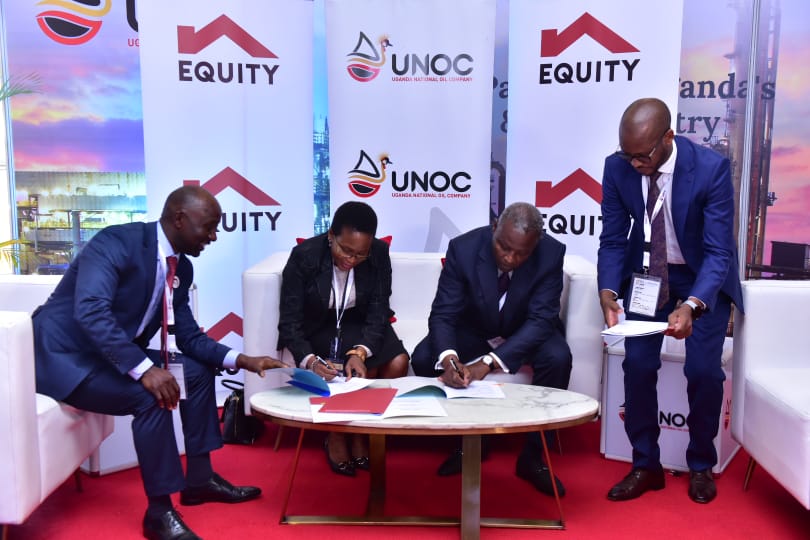
Through programs run by the Equity Group Foundation such as Young Africa Works, the parties shall work to scale up financial inclusion and shared prosperity through financial literacy to the population in the oil region, especially women and youth, support for farmers providing food for the ecosystem, health services for supply chain workers, and educational scholarships and leadership opportunities for young scholars.
It will also see the parties provide training in financial education and business management skills to facilitate access to finance for the MSMEs and the matchmaking of joint venture partnerships for players in the oil and gas value chains to enhance collaboration and greater capacity.
In the areas of Clean Energy and Environmental Conservation Equity shall work with UNOC to implement carbon capture programs. This will be achieved through carbon offset initiatives that will allow investments in environmental projects that will balance UNOC’s own carbon footprint.
Under this program, initiatives such as support to households and MSMEs to adopt cleaner sources of energy and modern technologies through training and finance (renewable energy) shall be considered. Also support to players within the Commercial and Industrial sectors to adopt cleaner and more efficient production processes (energy efficiency) and waste management projects aimed at capturing methane from landfill sites and from agricultural activities (waste to energy).
The collaborations will also see the parties support farmers in the oil regions to adopt climate-smart agriculture to reduce GHG from agricultural activities.
Under the MOU local farmers will get support in food production along diverse value chains to supply adequate nutritious food to not only the oil and gas workers, but also for sale to other markets and support to farmer groups in value addition and processing.
Given the inadequate skillsets in the region, the parties and the partner shall collaborate in the development of skills for Ugandans to participate in the Oil and Gas sector (local content) through initiatives such as sponsorship for short courses and industry certification programs and support to Vocational Institutes (TVET) students to acquire technical skills for job creation within the sector ecosystem.
